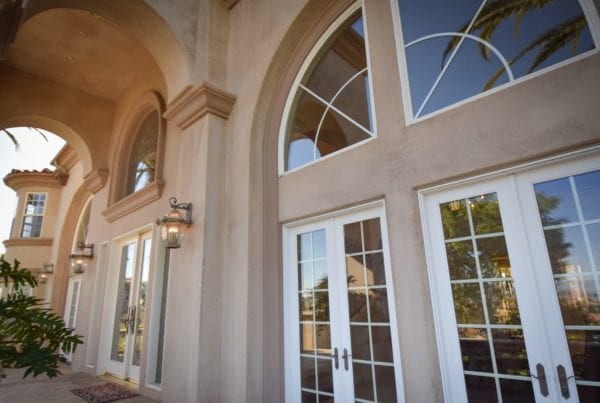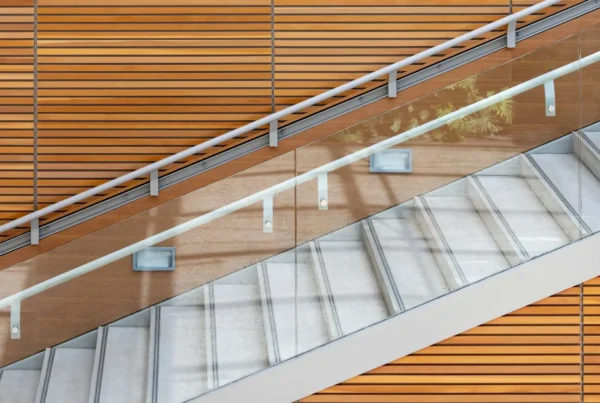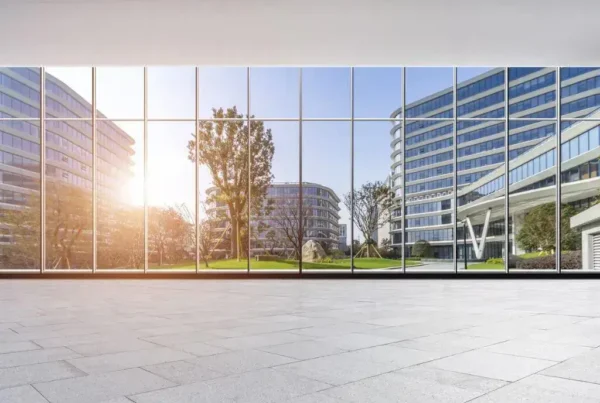Whether you’re a commercial building owner or an office tenant, you might be on the lookout for ways to improve both the functionality and aesthetics of your workspace.
While many people look to interior design to do this, there’s an equally powerful solution that can boost the performance, comfort, and visual appeal of workspaces all at once: commercial window tinting.
Tinting a commercial building’s windows with various types of window film not only provides performance and aesthetic enhancements but does so without breaking the bank. It’s one of the most cost-effective ways to give outdated commercial properties a contemporary facelift!
What Is Commercial Window Tinting?
Commercial window tinting involves applying a thin layer of window film directly to a building’s existing glass, typically on the interior surface of windows. Different types of film can also be applied to other glass surfaces, such as glass doors, partitions, and conference room walls.
Window tinting film for commercial buildings comes in various styles, shades, colors, and opacities, allowing you to fully customize the level of tinting to your specific needs, goals, and preferences.
Depending on the type of commercial window film you choose, it can serve various purposes, from increasing safety and security to improving energy efficiency and indoor comfort.
Benefits of Commercial Window Tinting
Increase Indoor Comfort and Productivity for Building Occupants and Employees
One of the primary benefits of commercial window tinting is that it can significantly improve the overall comfort of any workspace.

For example, excessive sunlight streaming through an office space’s windows can heat up indoor spaces, cause glare on computer screens, and create high levels of general discomfort for employees. Tinting windows mitigates these issues by controlling the type and amount of natural light that enters a room through its windows, reducing glare and blocking out infrared light, the type of light that leads to solar heat gain.
Commercial window tinting helps you maintain more consistent indoor temperatures and natural light levels, resulting in a more comfortable working environment, which can ultimately boost employee productivity.
Improve Energy Efficiency and Save Money on Monthly Utility Bills
Tinting your commercial space’s windows is also a smart choice from an energy efficiency perspective.
Various types of window films, such as sun control film, can act as a barrier against solar heat gain, reducing your reliance on air conditioning systems. These types of window films still allow high transmission of natural light through a building’s windows, so there’s less need for window coverings and use of artificial lighting. This can lead to even more energy savings.
If you want to save on energy costs and decrease your commercial space’s carbon footprint, commercial window tinting is a very cost-effective solution. In fact, some window films even qualify for energy efficiency tax incentives, making it an even more financially attractive choice for energy-conscious enterprises.
When you invest in energy-efficient commercial window film, you also demonstrate your commitment to environmental responsibility, which can be a selling point for environmentally conscious customers, clients, or prospective building tenants.
Protect People and Furniture From UV Damage
Ultraviolet (UV) rays from the sun can be harmful not only to human skin, but also to interior furnishings and office equipment. Prolonged exposure to UV rays can lead to fading and deterioration of carpets, furniture, and electronic devices.
Commercial window tinting acts as a shield against these harmful rays, protecting both the occupants of the space and the valuable assets within it by blocking out up to 99.9% of damaging UV light. This UV protection extends the lifespan of office furniture and equipment, saving businesses money in the long run.
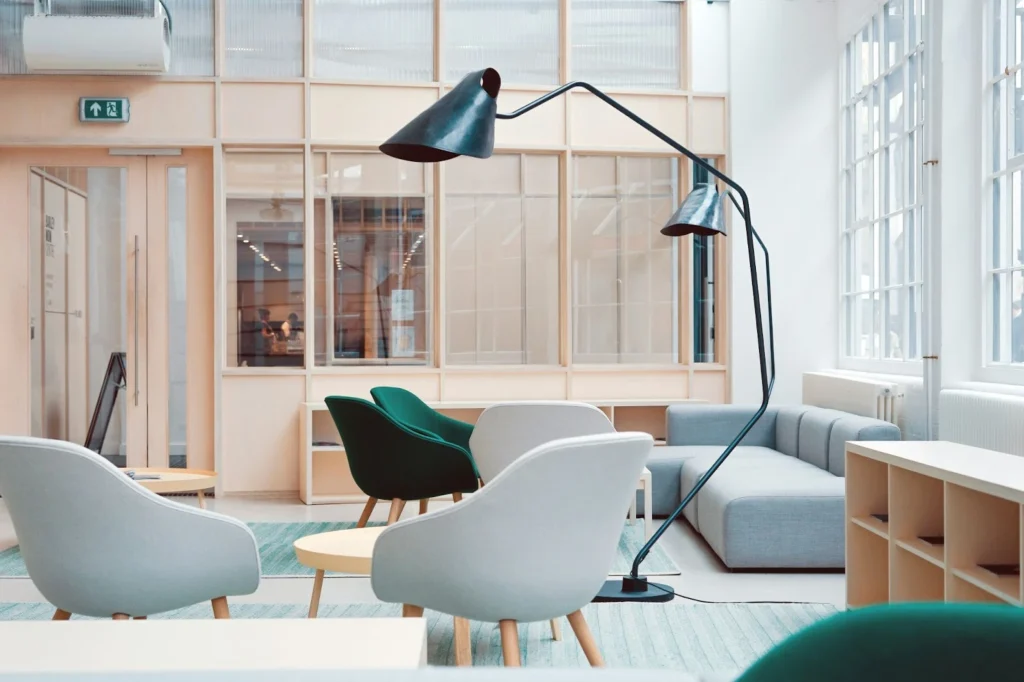
Increase Privacy and Security
Privacy is another top concern in many commercial spaces. Whether it's protecting sensitive information and maintaining confidentiality or simply allowing office occupants to work away from prying eyes, commercial window tinting offers a solution.
For example, tinting office windows provides daytime privacy without completely blocking out natural light or drastically reducing visibility out of the windows.
If your business requires more than privacy, you can use safety and security window film to reinforce glass doors and windows, making them more resistant to shattering and forced entry.
While safety and security film doesn’t prevent glass from breaking due to high-force or repeated impacts, it does help hold broken shards of glass in place, preventing them from flying dangerously inwards and delaying forced entry.
Add Branding and Improve Aesthetics
Commercial window tinting isn’t just about functionality — it can also significantly improve the aesthetics of your commercial space, both inside and out. Tinted windows can give a sleek, modern appearance to a building, contributing to a polished and professional image.
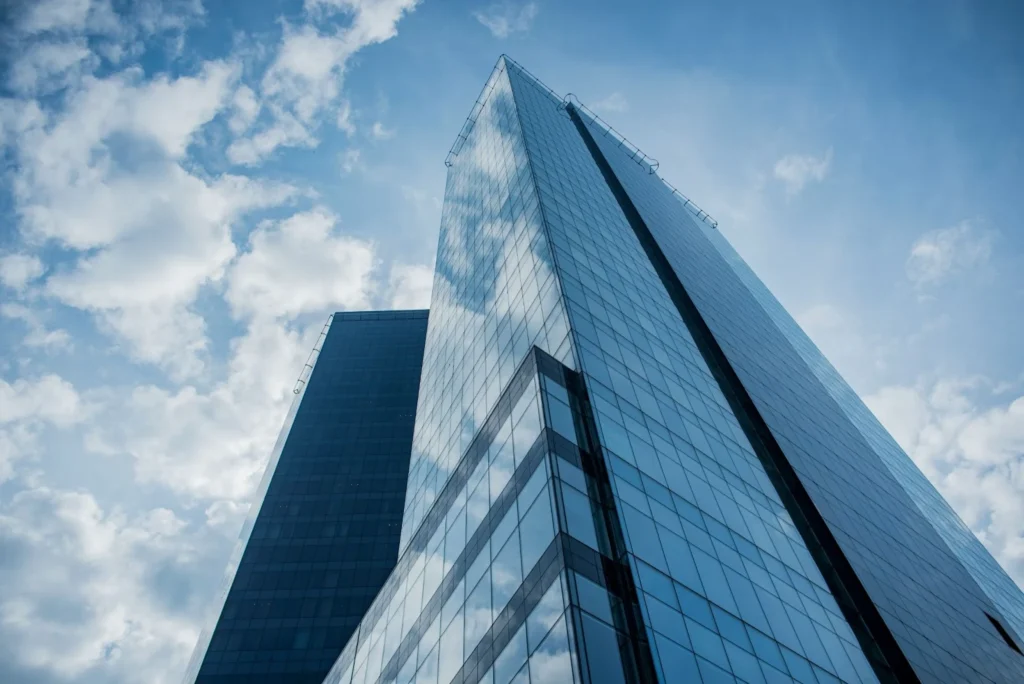
For example, you might choose to apply reflective (mirrored) window tint to all of an older glass office building’s windows, giving it a contemporary facelift as part of a facade re-imaging renovation project.
Many businesses also use window tinting as an opportunity for branding. Customizable window film options allow you to add company logos, graphics, or decorative patterns to glass, effectively turning your windows, doors, and other glass surfaces into a branding or creative canvas.
What Types of Commercial Window Tinting Films Are There?
When choosing commercial window tinting film, it's important to understand what types of films are available and what the unique features and benefits of each type are.
While some commercial window films share properties, such as UV protection, there are key differences that you should understand, so you can make a more informed choice about the right type of window tinting film for your commercial property.
Solar Control Films
These films are designed to block a significant portion of solar heat and reduce glare while still allowing natural light to enter the space. They are a popular choice for businesses looking to boost comfort and energy efficiency.
Privacy Films
Privacy films provide a reflective, dark-tinted, frosted, or opaque window coating, ensuring that prying eyes can’t see into the workspace when the light outside is brighter than inside. These films are often used for office windows and doors, conference rooms, and glass partitions.
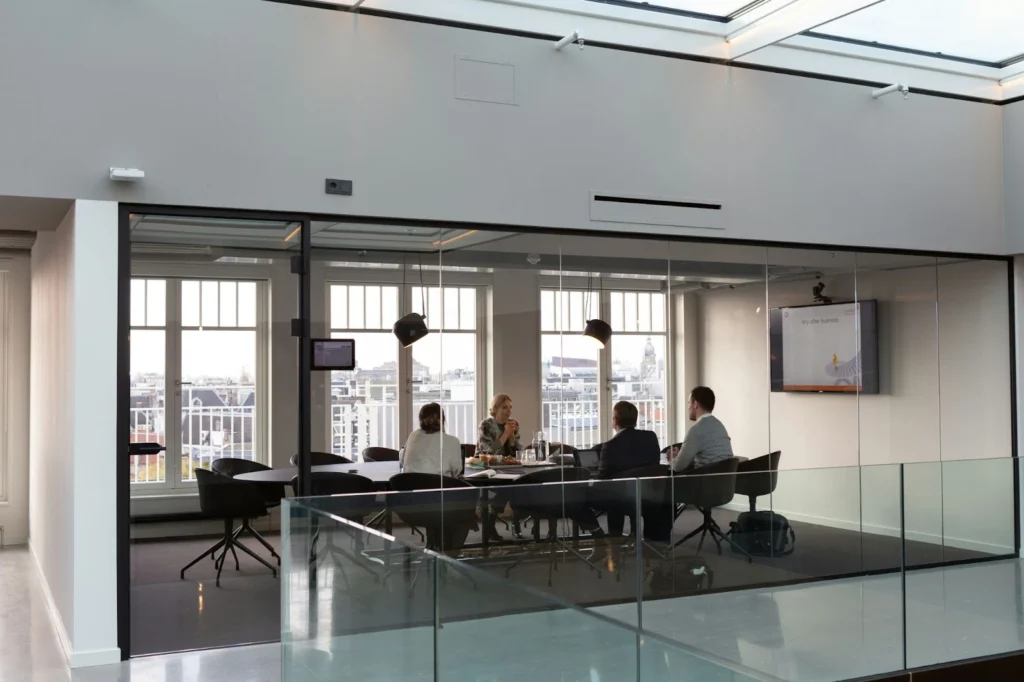
There’s even specialized cloaking window film that specifically blocks people on the other side of the glass from seeing what’s on a computer screen without reducing any other visibility.
Security Films
Designed to reinforce glass and make it more shatter-resistant, security films are an ideal choice for businesses concerned about safety and break-ins. They can also provide protection against extreme weather conditions and accidental impacts.
Decorative Films
These films are highly customizable and can include branding, logos, patterns, or artwork. Decorative films are an excellent choice for businesses looking to make a visual statement.
How Does Commercial Window Tinting Work?
Once you decide on what type of window film you want to install, commercial window tinting is a relatively straightforward process — as long as it’s done by professionals! Here’s how it works:
- Assessment: A professional assesses the windows and discusses your specific needs and goals, helping you decide on the level of tint, type of film, and any branding or decorative elements.
- Cleaning: Commercial window film installers thoroughly clean your windows and other glass surfaces to ensure the film adheres properly and without any imperfections.
- Film Application: The installers carefully apply your chosen window film to interior glass surfaces, taking care to ensure that there are no air bubbles or imperfections.
- Trimming: Excess film is trimmed, and the edges are sealed to create a seamless appearance.
- Curing: The film needs time to cure and adhere completely to the glass. This process can take several days, depending on the type of film and the environmental conditions.
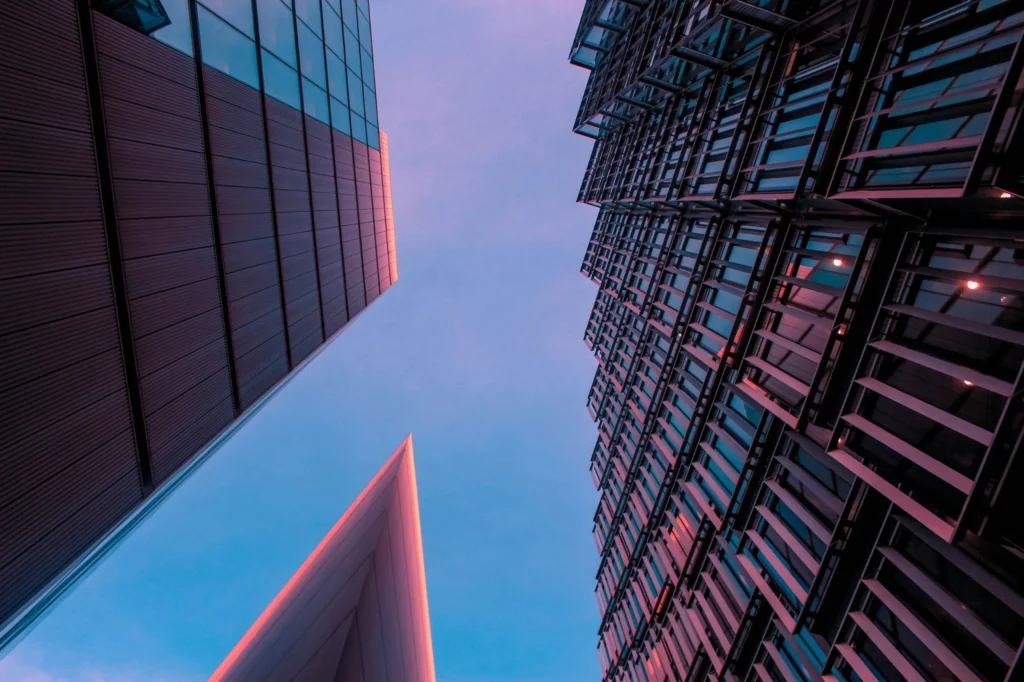
Conclusion
Investing in commercial window tinting is a smart, cost-effective way to enhance your commercial space’s comfort, energy efficiency, and overall appearance. Whether the goal is to reduce glare, improve privacy, strengthen security, or add decorative elements, the right window film can provide long-term benefits while maintaining a professional aesthetic.
Partnering with the experienced professionals at Campbell Glass and Films ensures proper window tint installation and maximum performance. Contact our commercial window film experts today to get started with a free consultation!

